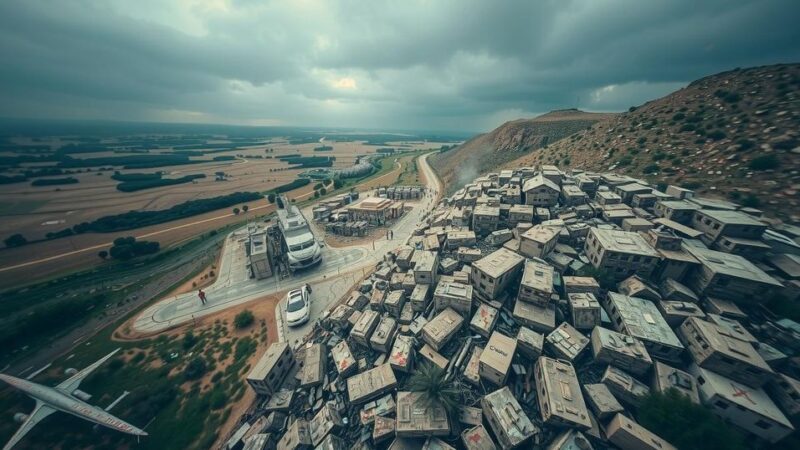An investigation in Kolwezi, DRC, reveals serious reproductive health risks for women linked to cobalt and copper mining. Local testimonies indicate rising occurrences of birth defects and stillbirths attributed to pollution from mining operations. The existing pollution in water sources and direct exposure to contaminated materials heightens these health challenges, calling for immediate attention and regulatory reform.
In the Democratic Republic of the Congo (DRC), industrial and artisanal mining of cobalt and copper raises reproductive health concerns for women, particularly in the region of Kolwezi, known as the “world’s cobalt capital.” Recent testimonies from healthcare professionals and local residents have indicated a disturbing increase in birth defects and related health issues among pregnant women. Preliminary investigations suggest that exposure to contaminated mining waste and polluted water may significantly contribute to these health risks. The ongoing study reveals that acidifying pollution from mining effluents and heightened radiation levels from certain ores could adversely affect local women. Artisanal miners, often lacking appropriate protective measures, face chronic exposure to hazardous materials while handling ores directly. Disturbingly, amidst the desperation for income, many women engage in purchasing and reselling these minerals, creating an intricate link in the supply chain that persists despite health warnings. While authorities in the DRC acknowledge the detrimental effects of mining activities, systemic issues such as regulatory failures and prevalent corruption inhibit effective remediation. Observations corroborated by NGOs such as RAID and AFREWATCH confirm severe contamination in local water sources, which consequently aggravates gynecological and reproductive conditions among the affected population.
The Democratic Republic of the Congo is one of the largest global suppliers of cobalt and copper, materials crucial for modern battery technologies. Both industrial and artisanal mining practices are prevalent in regions like Kolwezi, exacerbating environmental pollution. Mining operations often lead to acidifying waste and high radiation levels, posing serious health risks to those living and working nearby. The repercussions are especially dire for local women, who experience alarming rates of reproductive health issues, including stillbirths and congenital malformations. The urgency of the situation has prompted NGOs and researchers to investigate and report the correlation between mining pollution and women’s health.
In conclusion, mining operations in the DRC pose significant health risks to local women, particularly regarding reproductive health. Despite the ongoing recognition of the problem by authorities, inadequate regulatory frameworks and corruption complicate remedial efforts. The testimonies collected reflect a community struggling with severe environmental contamination and its dire consequences. A comprehensive response is critical to safeguard the health and future of vulnerable populations affected by mining activities.
Original Source: news.mongabay.com



